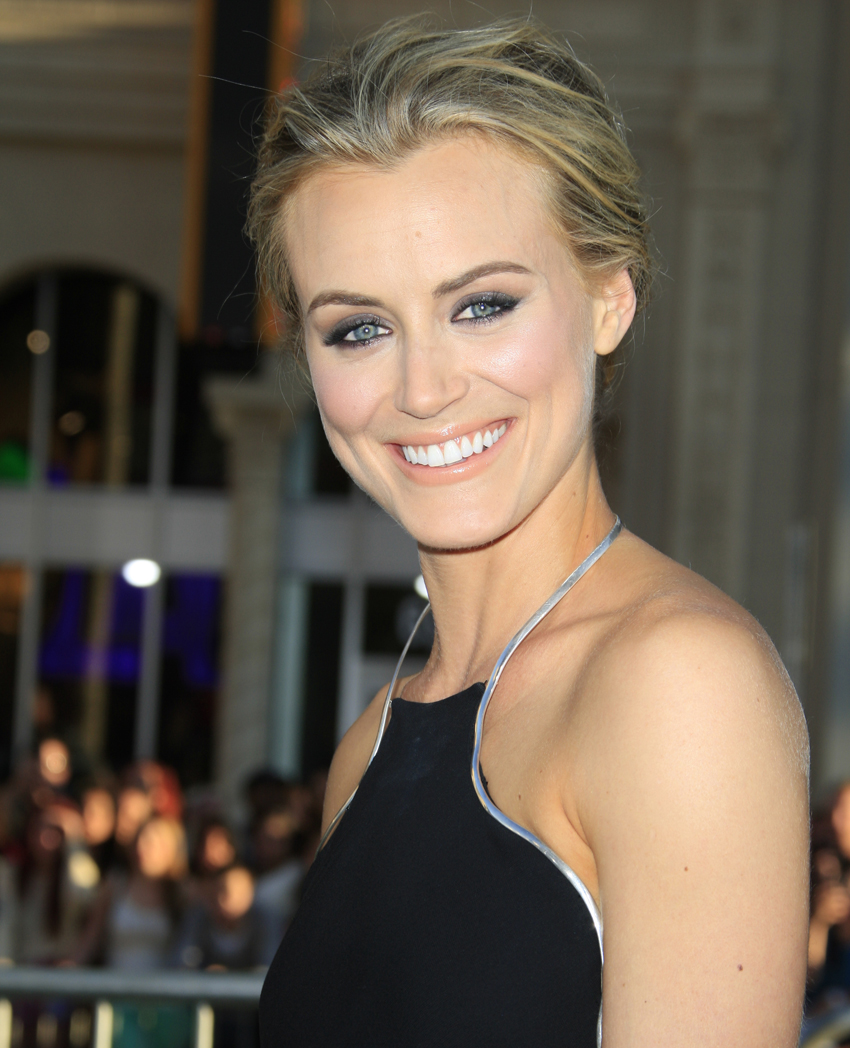Q&A: Taylor Schilling
Your father was a Bristol County prosecutor and actually worked for the state Department of Corrections. That’s pretty crazy.
Isn’t that wild? When I grew up, I would hear DOC this, DOC that. I would hear about him going to visit Walpole prison all the time. And all these crazy stories—looking back, it’s like, Oh my God, the stuff that he would tell us. It was like being prepared for this part when I was a wee one. It’s just very, very surreal. And then to put on that costume, with it saying, “Property of DOC” on my back. It was weird—full circle.
So what does your father think of the show?
Well, there are parts of it he’s not allowed to talk to me about.
I’m guessing the shower scenes.
Yeah, the shower scenes. Like, you can watch it. I don’t want you to mention it. I don’t want you to talk about it to me ever. We’re never going to discuss that for the rest of our lives. But other than that, you know what’s actually really cool? We have talked about the political aspect of the show, and he’s so proud of it. He believes the story is so important to be told—humanizing the experience of prisoners in the system. It’s sort of what he’s been talking about for my whole life, and it’s very cool to be on the inside of bringing that to a wider audience. As I’m talking to you, I’m realizing what a theme this has been my entire life. I haven’t even really put this together until this moment. Like, they’re very closely connected.
A breakthrough! We’ll send you the therapy bill later. But it’s interesting you say that, because the authorities in the show don’t always come off well.
It’s another thing I’ve been hearing my whole life, how the officers are a problem, sometimes more of a problem than the inmates. It’s different sides of the same coin: the correctional officers and the inmates.
There’s been a ton of talk lately about how there are a lot more great roles on TV right now for men than women. But your show is the opposite: It’s filled with interesting female characters. I’m guessing that was part of the appeal of it for you.
Absolutely. To find a woman’s role that is fully fleshed out and ambiguous and honest and unglamorized…it’s a needle in a haystack to find one of these roles, let alone 25. And that’s what this show does. I’d like to think that people are responding to that—for me, when I see that, it almost resonates in your animal brain. It almost passes your intellectual brain.
The characters are great, but when I was watching the first episode and the character Yoga Jones came on, I was going crazy trying to figure out where I knew her voice from. And then I read somewhere that it’s Patti Mayonnaise from Doug. Doug!
Oh, totally. And I didn’t even realize that it was her until somebody told me that they read that online. But I did the whole series without knowing that. She’s so awesome. Isn’t that wild? Doug defined a generation.
So when you saw the script for Orange Is the New Black, did you read it and just say, “Man, this is gold”? Or did you have to be convinced?
I was so excited to read it, because I was a really big fan of [show creator] Jenji Kohan. But then I read it, and I was just totally blown away. I think it was the best television script I had ever read, and maybe the best script, period, in terms of character.
So there was no doubt? Because there’s some pretty intense stuff in those scripts. In the show’s opening sequence, you have a lesbian shower-sex scene.
It was really full speed ahead. I thought that the story she was telling was really important and also risky—and so was going to require risks. Not only physically, not only with, like, my body, but also emotionally in every capacity. I had my own feelings about it, and I was nervous and things like that. But I never doubted it.
And definitely did not talk to your father about it.
Definitely did not go to my father for advice on that one. Definitely did not. We had a different sounding board than my father.



